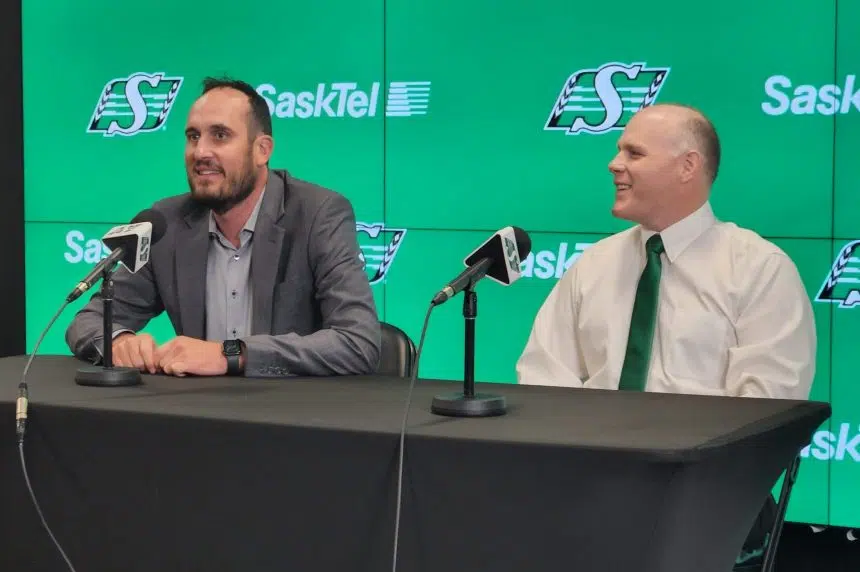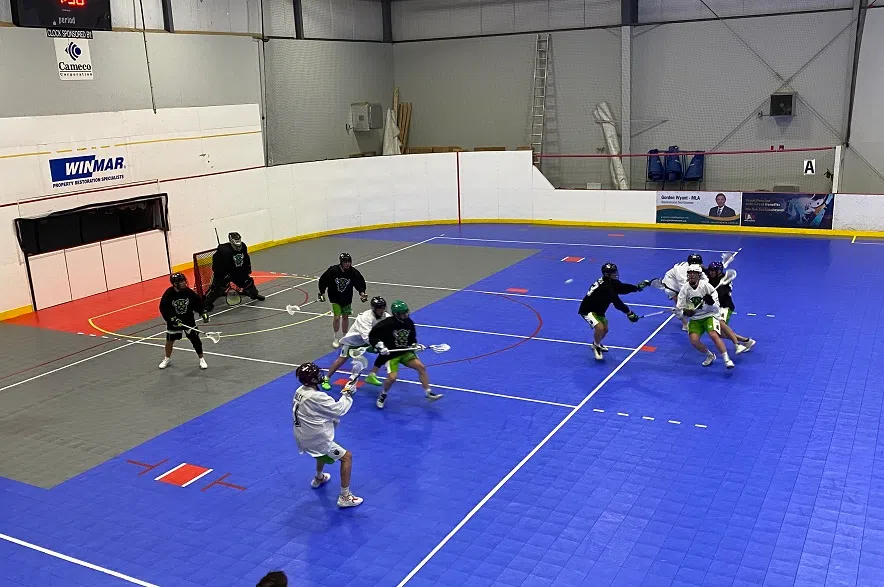The Green and White is back in the black.
The Saskatchewan Roughriders announced Tuesday prior to their annual general meeting an operating surplus of $3,883,291 for the financial year ending on March 31 of this year.
That comes a year after the CFL team lost $8,371,601 from the 2020 season that was cancelled due to the COVID-19 pandemic. In 2020, Riders president-CEO Craig Reynolds called the pandemic “the biggest financial crisis” to face the team.
“I think at the time there was so much uncertainty, I think that was a very fair comment,” Reynolds said. “I think what we saw with the results that we’ve announced today (is) that recovery has happened and reasonably quickly and I think that’s a credit to our fan base.
“We did say it was going to be a multi-year recovery, and this is the start of that, but it will take us likely this year and hosting a Grey Cup and we should see the other side of this.”
While the path has begun, the Riders still need to make back $4,488,310 to recoup the losses suffered from the cancelled season.
The team announced revenues of $33.7 million, one of the main reasons being the gate revenue generated from actually holding games.
In 2021, the Riders received $11,116,827 from gate revenue after getting nothing during the cancelled season.
Club expenses also increased, rising to $29.9 million during the year compared to $18.7 million in 2020. That’s mostly due to player salaries, travel and training camp costs, among other things.
But there are a number of factors still working against the Riders as they continue on their road to recovery, including inflation — such as the price of gas — and changing viewing habits.
Ticket sales are down nine per cent from pre-pandemic levels, going from an average of about 30,000 per game in 2019 to 27,500 per game in 2022.
“We’re trying to do as many things as we possibly can based on the feedback and the things that we’re able to understand from data to respond to it,” Reynolds said. “We’re seeing this across the industry — sports and live events — so if we had the magic solution, we would have implemented it and sold it to others.”
The Riders do believe there are reasons for optimism.
“Our fans and our crowds have been really, really young, really, really diverse and lots of families and lots of young people,” Reynolds said. “We are seeing a good demographic at our games and I think as we get into the fall, we will see some higher attendance numbers.”
Reynolds also believes hosting the 2022 Grey Cup will be an important part of getting back the money the team had lost.
“When we lost the 2020 season and couldn’t host the Grey Cup, we were disappointed. It led to another two years of planning and it just led to another round of (ideas) and put forward a really strong Grey Cup Festival,” Reynolds said. “When you do that, generally it leads to profitability and that will really accelerate the recovery.
“We talked a little bit about the two-year loss and we anticipate this year will get us back to pre-COVID levels.”
When the 2020 season was cancelled, the team thought it was going to have to reach in and completely drain its stabilization fund, which was $7,823,323 prior to the cancelled season.
During 2021, the team pulled out $999,000 from it, decreasing it to $6,883,906.
“The government programs we accessed, that was able to help us and required us to not dip into that. Our fans were the No. 1 reason. They kept their money with us — their season-ticket money, they rolled that over to next year — and we had very few requests for refunds,” Reynolds said.
“We did drastic organizational cuts, both in terms of sheer numbers of people in our organization and then also salaries, just to manage ourselves through that.”
Reynolds said the pandemic taught the Riders a number of things when it comes to running their business.
“There is some level of seasonality to our business as it relates to hosting home games and those type of things, so I think we learned some things through that,” Reynolds said. “We have some temporary resources, some younger resources that we are able to leverage to get us through a season.”
During the pandemic, a spotlight was shined on how the CFL does business and how it could improve and change the model.
Reynolds said that while it might not be visible now, the wheels are in motion for changes to occur.
“It’s not like things are not happening; they may just not be as happening as quick as we all liked them to be and they may not be as visible as we’d all like them to be but it is going to come,” Reynolds said.
“We’re selling a lot of family packs — which is something we introduced this year — and that has been tremendously successful and we’re seeing a number of kids and families at the stadium.”
Reynolds admitted it’s tough to know when things will return to how they were pre-COVID, if ever.
“We thought this year might be more normal and we are realizing it’s not,” Reynolds said. “COVID is so unpredictable — we had a COVID outbreak that resulted in a game being shifted and we thought we were past that. We didn’t think that was something we were going to have to deal with and we did.”







